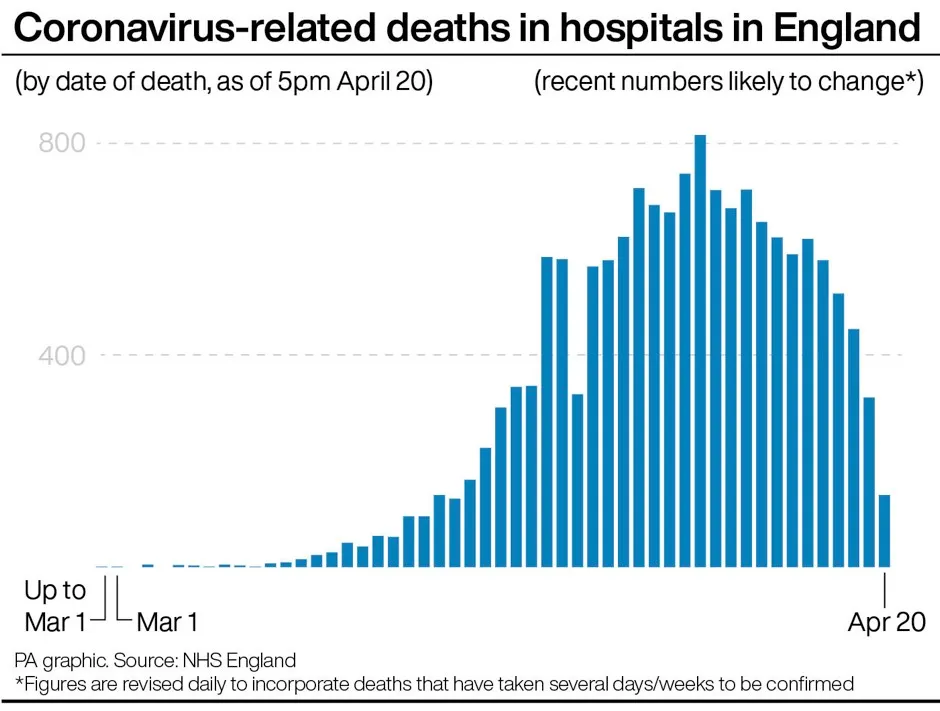The UK’s current COVID-19 policy could be putting 7.3 million people aged between 60 and 69 at increased risk of severe illness and death, experts have warned.
In an article published in the Journal of the Royal Society of Medicine, the scientists said data from countries such as China and Italy show those aged between 60 and 69 are also at high risk of complications and death from the novel coronavirus.
This risk is lower compared with those aged 70 years or older.
Professor Azeem Majeed, head of the department of primary care and public health at Imperial College London, said: “The UK’s policy is at variance with the World Health Organisation, which states that those above the age of 60 years are at the highest risk, requiring additional preventative measures.”
He added: “To reduce hospitalisations, intensive care admissions and death we recommend that those aged between 60 and 69 are particularly stringent when implementing public health measures such as social distancing and personal hygiene.”
Read the latest coronavirus news:
- All vaccines are ‘long shots’ and search for coronavirus jab will be no different, government science advisor warns
- Mental health impact of coronavirus outbreak ‘requires urgent study’
- Lockdown alone not enough to build herd immunity, scientists warn
Government guidance suggests those aged 70 or older should be more rigorous in following social distancing measures, regardless of whether they have medical conditions or not.
Examples of these measures include avoiding face-to-face contact with family and friends as much as possible, and using telephone or online services to contact their GP or other essential services.
The guidance also applies to those under 70 who have underlying health conditions or a weakened immune system.

Although the lockdown imposed by the government means everyone regardless of their age or health conditions is expected to follow the guidance on social distancing, Prof Majeed said people under 70 can still undertake activities like going to work and grocery shopping.
Prof Majeed, who co-authored the article with colleagues from Imperial College London and the University of Exeter, said case fatality rates for those aged 60-69 are 3.5 per cent in Italy and 3.6 per cent in China.
Other countries, including Switzerland and France, have encouraged those aged 65 and older to follow strict public health measures, the authors added.
Your questions about the coronavirus:
- Coronavirus: Is hand-washing really the best thing we can do to stop the spread of COVID-19?
- Can herd immunity protect us from COVID-19?
- How will the NHS contact-tracing app work and how could it affect my privacy?
- COVID-19: What's the UK's exit strategy out of lockdown?
Commenting on the article, Dr James Gill, an honorary clinical lecturer at Warwick Medical School and locum GP, said one of the benefits of extending the isolation to those aged 60 and above is that it would lead to a further reduction in pressure on the NHS’s intensive care unit resources.
He added: “The risk of mortality from COVID-19 in the 60-69 years age group remains substantial compared to younger members of the population. However, it must be acknowledged people in their 60s have a mortality risk six times lower than those 70 years and older.
“Thus whilst it may be reasonable to question whether measures should be extended to those in the 60-70 years group, this should not cause significant concern for those people.”

Responding to the article, Dr Nick Phin, deputy director of National Infection Service at Public Health England, said: “England data shows that the groups most likely to die from COVID-19 are men and those over the age of 70.
“Sadly, two-thirds of deaths have been in men and 79 per cent of all deaths are among those aged 70 and over.”
How can I protect myself from the coronavirus when shopping?
You’ll have seen signs in your local supermarket advising you to keep two metres from others while moving around the store. This is key to reducing your chances of catching the virus while shopping.
The coronavirus SARS-CoV-2 is spread through respiratory droplets that leave our mouth and nose when we cough, sneeze, or sometimes even talk. The droplets sprayed out by an infected person will contain the virus, which could then enter your body via your mouth, nose or eyes (this is why you shouldn’t be touching your face).
Respiratory droplets don’t usually travel more than one metre, so by keeping two metres from others, you’ll reduce the likelihood of being in the firing line. To make it easier to keep your distance, try to shop during off-peak hours, choose a store that’s limiting the number of people who can be inside at any one time, and use self-checkout if you can.
Keeping your hands clean is the other main thing you can do. If possible, wipe the trolley or basket handles with a disinfectant wipe when you arrive at the store. When you get home, wash your hands or use hand sanitiser before and after unpacking your bags.
A US study found that the coronavirus can survive for up to 24 hours on cardboard, and up to three days on hard, shiny surfaces such as plastic, so wiping down your purchases with a disinfectant spray or a soapy cloth before you put them away is another good habit to get into.
Read more:
